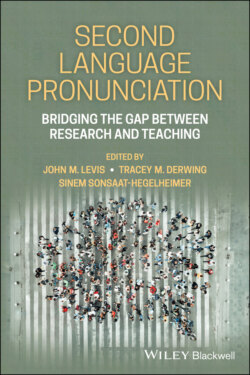Читать книгу Second Language Pronunciation - Группа авторов - Страница 16
Pragmatic Speech Acts
ОглавлениеDerwing et al. (2021) hypothesized that predictability in speech contributes to overall comprehensibility. They tested this by teaching the pragmatics of four speech acts (compliments, requests, polite refusals, and apologies) to intermediate learners of English through the use of role-plays. Aspects of each speech act were taught explicitly; for instance, requests were broken down into Interruptions (Do you have a minute?/Sorry to interrupt), Explanations (The school called and my child is sick), Requests (Can I leave a bit early to pick him up?) and Solutions (I can make up the time tomorrow). The students watched videos of appropriate and inappropriate speech acts, and then practiced scenarios on their own. They were in turn video-recorded, and they watched each other’s role-plays and offered suggestions for improvement. The students were deeply engaged with the classes, and felt as though they were learning “the flow of Canadian speaking, which is different from back home speaking” (p. 124). Pre- and post-recordings of two requests and two polite refusals (considered the most difficult of the speech acts taught) were played to listeners who rated them for social appropriateness, comprehensibility, and fluency. All four scenarios were rated as significantly more socially appropriate after instruction. All but one of the scenarios was rated as significantly more comprehensible, suggesting that predictability does make it easier for listeners to process L2 speech. Only one scenario was rated as significantly more fluent post-intervention; one was significantly less fluent, and two were unchanged. The authors attribute this finding to the relative difficulty of negotiating the pragmatics of these speech acts.
